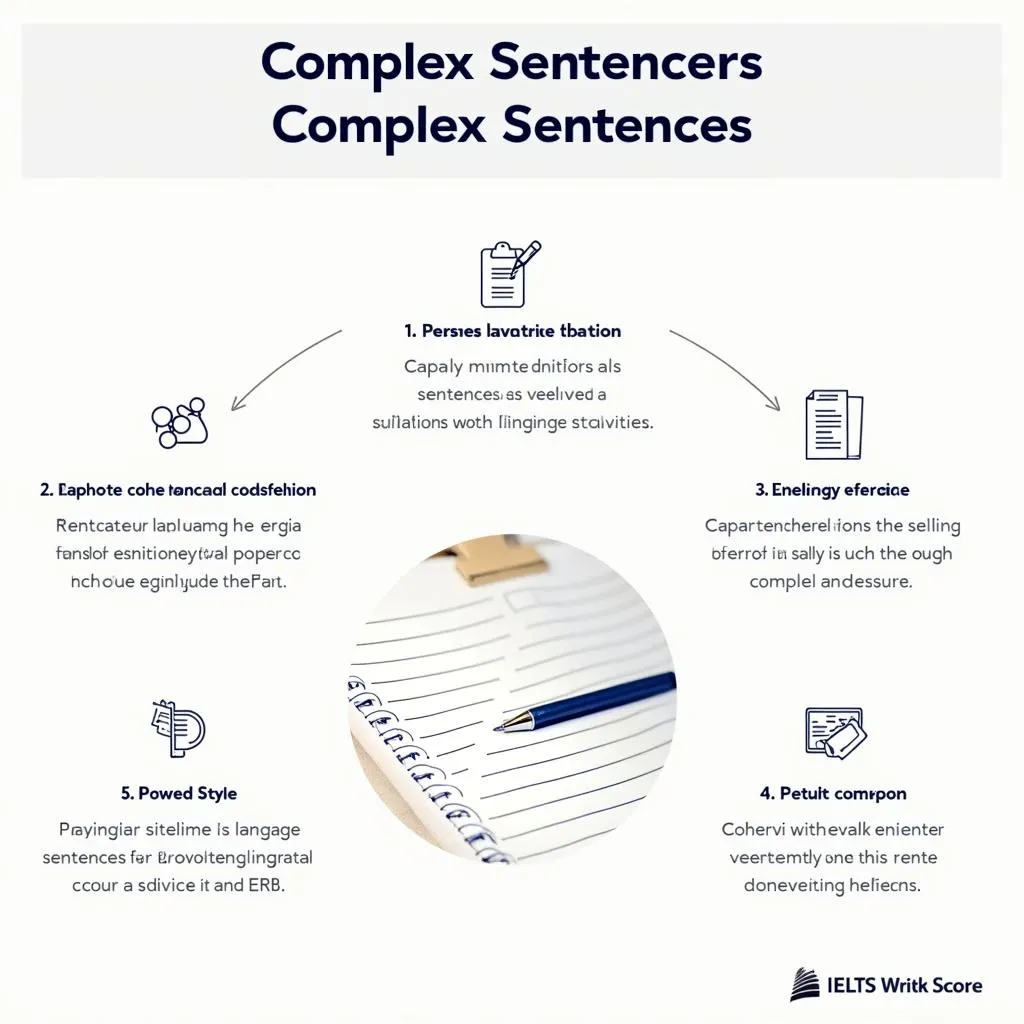Understanding Complex Sentences in IELTS
Complex sentences play a crucial role in achieving a high band score in IELTS Writing. They demonstrate your ability to express sophisticated ideas and showcase your advanced grammar skills. A complex sentence contains an independent clause and at least one dependent clause, allowing you to convey more information and establish relationships between ideas.
Why are Complex Sentences Important?
- Demonstrate language proficiency
- Improve coherence and cohesion
- Enhance your writing style
- Boost your IELTS Writing score
Complex sentences are essential for achieving band 7 and above in IELTS Writing. They show the examiner that you can use a variety of sentence structures and express complex ideas effectively.

Types of Complex Sentences
To master complex sentences, it’s essential to understand the different types and how to construct them. Here are the main types of complex sentences you should focus on for IELTS Writing:
1. Relative Clauses
Relative clauses add extra information about a noun in the main clause. They are introduced by relative pronouns such as who, whom, whose, which, and that.
Example: “The book, which I borrowed from the library, was extremely helpful for my research.”
2. Adverbial Clauses
Adverbial clauses provide additional information about the main clause, such as time, reason, condition, or purpose.
Example: “Although it was raining heavily, we decided to go for a walk.”
3. Noun Clauses
Noun clauses function as nouns in a sentence and can be used as subjects, objects, or complements.
Example: “What she said during the meeting surprised everyone.”
4. Participle Clauses
Participle clauses are a concise way to add information to a sentence using present or past participles.
Example: “Having finished her homework, Sarah decided to watch a movie.”
Strategies for Writing Complex Sentences
To effectively incorporate complex sentences into your IELTS Writing, follow these strategies:
- Start with simple sentences and gradually combine them
- Use a variety of conjunctions and linking words
- Practice identifying and creating different types of clauses
- Balance complex sentences with simpler structures for clarity
Remember, the key is not to overuse complex sentences but to use them appropriately to express your ideas clearly and effectively.
Common Mistakes to Avoid
When writing complex sentences for IELTS, be aware of these common pitfalls:
- Overcomplicating sentences: Don’t try to include too many ideas in one sentence.
- Misusing punctuation: Ensure you use commas, semicolons, and other punctuation marks correctly.
- Losing clarity: Complex doesn’t mean confusing. Make sure your ideas are still clear and coherent.
- Neglecting subject-verb agreement: Pay attention to singular and plural subjects and verbs in longer sentences.
- Overusing relative pronouns: Avoid using “which” or “that” excessively.
Practice Exercises
To improve your skills in writing complex sentences, try these exercises:
- Sentence combining: Take two or three simple sentences and combine them into one complex sentence.
- Clause identification: In a given paragraph, identify different types of clauses used.
- Sentence transformation: Rewrite simple sentences as complex ones without changing the meaning.
- Error correction: Identify and correct mistakes in complex sentences.
- Topic-based writing: Practice writing complex sentences on common IELTS topics.
Learn more about IELTS Writing Task 2 structure
Conclusion
Mastering complex sentences is a vital skill for success in IELTS Writing. By understanding the different types of complex sentences, practicing regularly, and avoiding common mistakes, you can significantly improve your writing score. Remember to use complex sentences judiciously, maintaining a balance with simpler structures to ensure clarity and coherence in your writing. Keep practicing and refining your skills, and you’ll see improvement in no time.